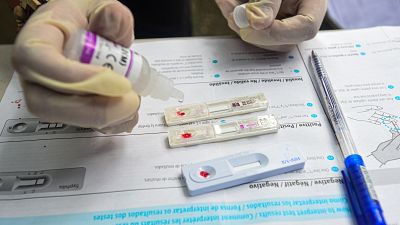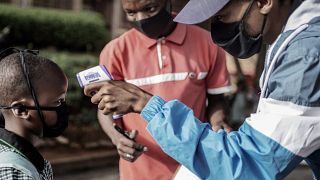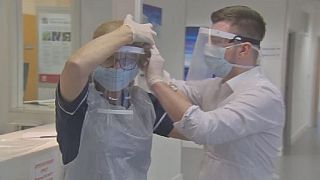HIV
Since late 2018, researchers have been burning the midnight oil to get to the core of the current pandemic, Covid-19. Several vaccines have been developed while some are still being worked on from various parts of the globe.
Despite all these noble initiatives to save humanity, some scientists made milestones in coming up with major breakthroughs on HIV and Aids.
Scientists in the past three months have made three major breakthroughs in saving humanity from HIV and Aids that have affected over 38 million people in the world.
Injectable PrEP
Research conducted in seven African countries revealed that women taking long-acting injections of cabotegravir had 89% fewer HIV infections than women prescribed daily Prep. The research was led by Professor Sinead Delany-Moretlwe of the University of Witwatersrand in South Africa.
Though much research has revealed that the HIV oral pills are effective, but adherence to the daily pills have proved problematic to patients who fight the never-ending prejudice.
The PrEP injection will help reduce the risks of HIV and Aids infection especially those who are in their periods of high prevalence. The injection will be done once a month and therefore helpful to those who face daily discrimination from their status, sex workers, and discordant couples.
In the absence of these prevention options in the study communities, HIV incidence is approximately 3.5% a year. In the study’s oral PrEP arm, it was 1.9%, and in the injectable PrEP arm, 0.2%.
Monthly injections for HIV patients
The U.S. Food and Drug Administration (FDA) approved an injectable Cabenuva drug which consists of cabotegravir and rilpivirine; ViiV Healthcare for the treatment of HIV infection in adults.
Cabenuva injection is meant to replace the antiretroviral regimen taken daily by HIV-infected adults.
Cabenuva combines both cabotegravir, an HIV integrase strand transfer inhibitor, and rilpivirine, which is an HIV non-nucleoside reverse transcriptase inhibitor.
A study was done involving 1,100 patients from 16 countries within 48 weeks revealed the drug is effective in suppressing HIV.
The discovery will help those who find it difficult to carry along their drugs and also those who face daily stigma associated with the disease.
The injection has mild side effects and those tested reported mild symptoms like headache, fatigue, sleep disorder, dizziness, rash, and pyrexia.
Vaginal Ring
For decades, safe sex practice has always been the best way to protect individuals against HIV and Aids infection especially among women and girls.
Today, women account for more than half of those affected by HIV and Aids in the entire world. A study conducted a few months ago revealed that 60% of those infected with HIV and Aids in Sub-Sahara Africa are women.
A women-tailored vaginal ring known as the Dapivirine Vaginal Ring (DPV-VR) has been on sale for quite some time now and has helped caution women against HIV infections.
The ring has proven efficacy in terms of HIV reduction risks by 35 percent, with recent data from open-label extension studies suggesting a greater reduction in HIV risk by about half.













01:05
Study finds millions of children at risk as global vaccine rates fall
01:48
South Africa launches vaccination drive to combat foot-and-mouth disease outbreak
01:29
US medication safety agency approves biannual preventive HIV shot
01:37
Sudan faces rapidly-spreading cholera outbreak, 1000 daily cases in capital
01:06
Haiti health officials meet to discuss shortage of HIV/AIDS medication
01:46
Haiti running out of HIV medication due to USAID funding cuts